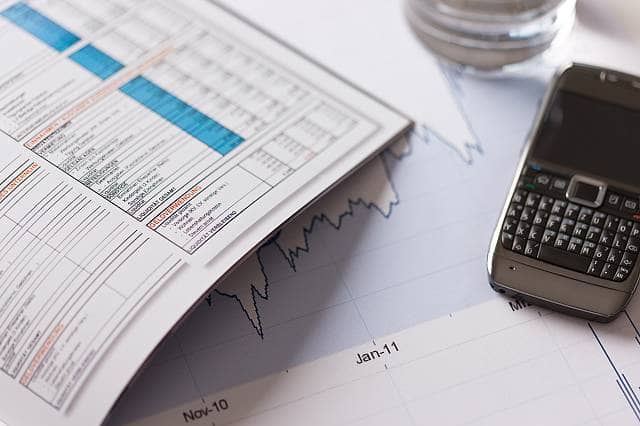If you’ve recently started a small business, you may be wondering if VAT charges need to be factored into your finances. Not every business will need to pay VAT, but those that do should plan ahead. Failing to consider these extra charges could considerably impact your predicted revenue at the end of the financial year. But before jumping at the chance to register for VAT, take some time to understand how VAT could impact your business and whether you even need to register.
VAT basics: Who needs to pay?
VAT or Value-Added Tax is a charge that’s applied to various goods and services at a standard rate of 20% of their sale price. Some goods and services, such as children’s clothing and educational activities, are exempt from VAT, while others are taxed at a reduced rate. Businesses selling goods or services that are VAT taxable can register to pay VAT online but aren’t required to do so until they exceed the annual turnover threshold of £85,000.
It’s worth noting that, since April 2022, all businesses that are VAT registered must use accredited accounting software to complete their online VAT returns as a result of Making Tax Digital (MTD). This policy was introduced in an effort to make the tax return process easier and reduce the number of errors being made by businesses every year.
But just because VAT registration is easier now doesn’t mean it’s right for everyone. After all, if businesses with an annual turnover below £85,000 aren’t required to pay VAT, what benefits could registration possibly offer them?
Pros of VAT registration
Some businesses avoid registering for VAT until they absolutely have to, as it does involve paying a type of tax they didn’t need to before. However, VAT registration can come with some benefits, including:
Financial preparedness
If your business is very likely to reach the £85,000 threshold at some point during the financial year, registering for VAT early can make it easier to plan your finances. Rather than scrambling to change your accounting system, you can account for any additional tax from the very start of your trading journey. Failing to register for or pay VAT once you pass the threshold may result in fines and cash flow issues, so be prepared to closely monitor your turnover if you aren’t planning to register early.
Eligible for VAT refunds
One of the biggest benefits of being a VAT-registered business is the ability to claim back the VAT on goods and services you’ve purchased from other businesses. This can be backdated for up to four years as long as you’ve retained the invoices of relevant business purchases.
You will only be able to claim VAT back on goods or services that you use for your business and your business alone. Any goods that serve a dual purpose and play a role in your personal life won’t be eligible. You also can’t make any claims for VAT-exempt goods or goods purchased from a supplier that hasn’t paid VAT. This is because VAT refunds work by offsetting the VAT you’ve been charged with the VAT you charge your customers. As a result, other VAT-registered businesses may be more likely to buy from you if they can claim back the VAT on any goods you sell them.
Improved credibility
Registering for VAT helps your business to appear more credible to both customers and other businesses who may be buying your goods or services. If you’re eager to dispel your venture’s image as a start-up, VAT registration could help you to create the illusion that your operations are much further-reaching than they really are.
Customers will automatically know you’re VAT registered because VAT charges will appear on any invoices you send them. However, you can also include your VAT registration number on letterheads or in your e-mail signature when communicating with prospective investors or suppliers.
Cons of VAT registration
While it’s true that voluntary VAT registration can be beneficial for many businesses, for others the challenges it brings outweigh any positives. Some of the disadvantages of VAT registration include:
Higher prices
Registering for VAT will drive up the prices of your goods and services, which could have a negative impact if you’re a B2C company or sell primarily to non-VAT-registered businesses. While VAT-registered businesses may be happier to buy from you because they can claim back additional VAT costs, the general public may now find your prices to be too expensive, resulting in a loss of sales.
Increased admin
Submitting a VAT return on top of your regular self-assessment will increase the amount of admin you have to perform on a regular basis. Not only will you have to keep careful records of all your invoices and expenses, but you will usually need to file a VAT return to HMRC once every three months. This means staying abreast of deadlines as well as any changes to policies and exemption rules when claiming back VAT.
More taxes
For some businesses, claiming back VAT on goods purchased balances out the additional VAT they need to pay at the end of the financial year. However, if your VAT bill comes to a sum greater than the amount you’re able to claim back, you’ll be at a financial disadvantage.
Registering for VAT
If you’ve decided that VAT registration is right for your business, you need to start the process by signing into HMRC’s online services. The application usually only takes around two weeks to finalise but you won’t be able to include VAT charges on customer invoices until you’ve received confirmation. However, you can preemptively increase your prices to allow for these future charges.
Ultimately, VAT registration is a personal decision that will impact every business differently. The important thing to remember is that VAT registration is reversible. You don’t have to be registered every year and you may even be able to deregister if you are below the £85,000 threshold in a particular financial year.

